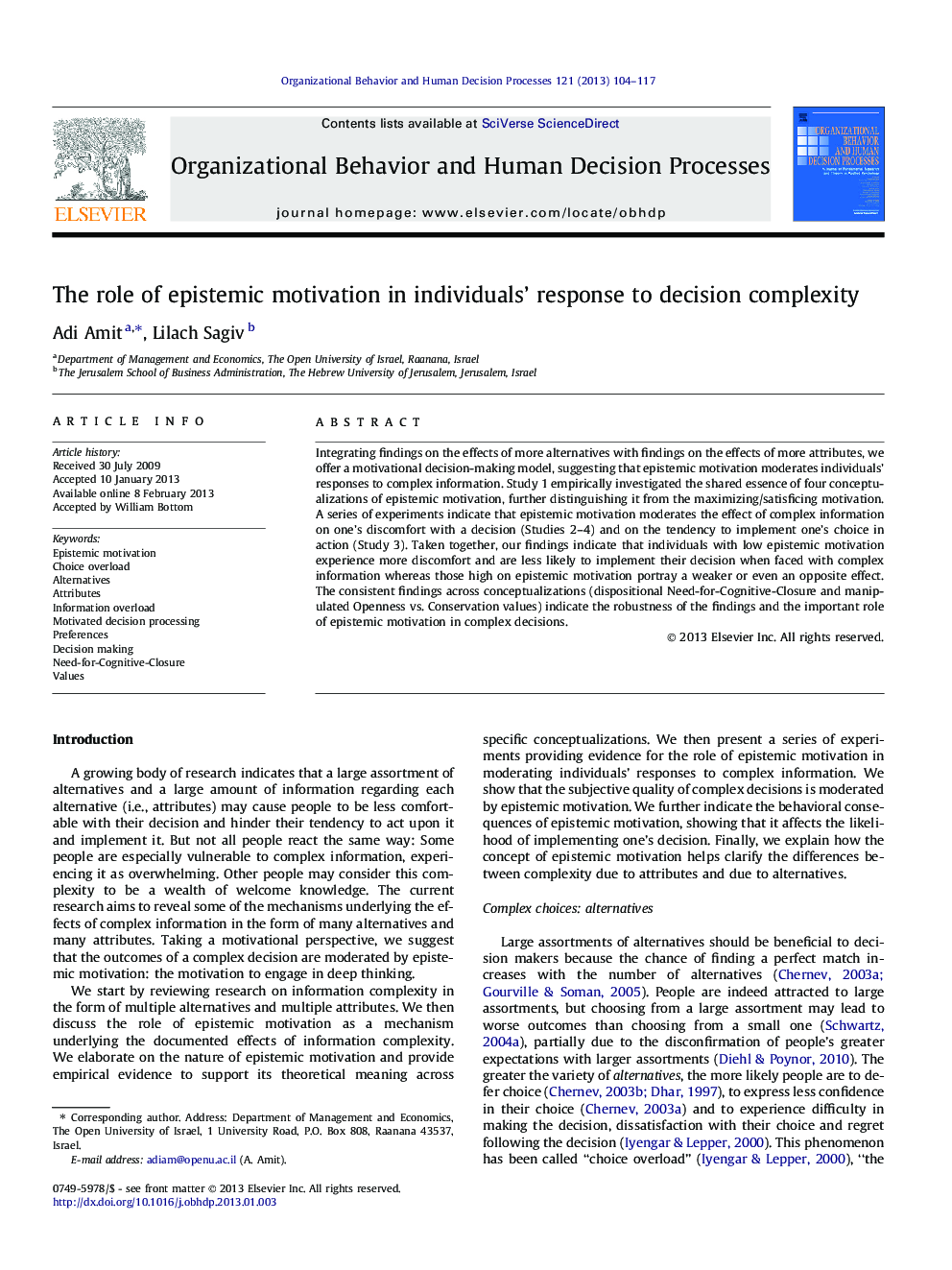| Article ID | Journal | Published Year | Pages | File Type |
|---|---|---|---|---|
| 888636 | Organizational Behavior and Human Decision Processes | 2013 | 14 Pages |
Abstract
Integrating findings on the effects of more alternatives with findings on the effects of more attributes, we offer a motivational decision-making model, suggesting that epistemic motivation moderates individuals’ responses to complex information. Study 1 empirically investigated the shared essence of four conceptualizations of epistemic motivation, further distinguishing it from the maximizing/satisficing motivation. A series of experiments indicate that epistemic motivation moderates the effect of complex information on one’s discomfort with a decision (Studies 2–4) and on the tendency to implement one’s choice in action (Study 3). Taken together, our findings indicate that individuals with low epistemic motivation experience more discomfort and are less likely to implement their decision when faced with complex information whereas those high on epistemic motivation portray a weaker or even an opposite effect. The consistent findings across conceptualizations (dispositional Need-for-Cognitive-Closure and manipulated Openness vs. Conservation values) indicate the robustness of the findings and the important role of epistemic motivation in complex decisions.
Related Topics
Social Sciences and Humanities
Business, Management and Accounting
Marketing
Authors
Adi Amit, Lilach Sagiv,
